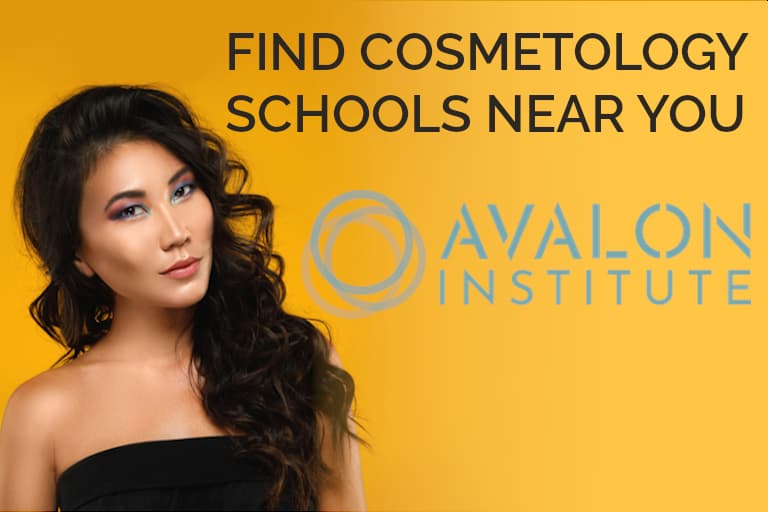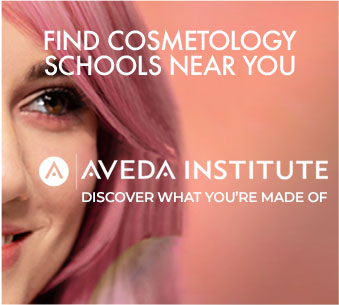Permanent Makeup Artist License Requirements
Permanent makeup artistry spans the fields of cosmetology, tattooing, and sometimes health care. That complicates the licensing process, which you may need to complete before you can legally work. The rules and regulations regarding those licenses are set by individual states, each of which has its own requirements and standards.
Some states, like Florida, are working to reform and streamline their licensing processes. These new regulations are in response to a wave of highly-publicized incidents in which unqualified, unlicensed permanent makeup artists botched procedures and injured customers.
As the industry becomes more prominent and the public becomes more aware, there are likely to be new regulations in other states as well. For now, expect to encounter a level of inconsistency and gray area as you work toward licensure.

sponsored content, school availability varies by location

sponsored content, school availability varies by location

sponsored content, school availability varies by location

sponsored content, school availability varies by location

sponsored content, school availability varies by location

sponsored content, school availability varies by location
What Are the Requirements for Obtaining a Permanent Makeup License?
The requirements for obtaining a permanent makeup artist license vary depending on where you live, your career goals, your specialty, and your work setting. The biggest variable of them all is the state you call home.
Some states license permanent makeup artists as tattoo artists. Others require a special certification after you earn an esthetician or cosmetologist license. In some states, you only need a license in certain settings like salons or healthcare facilities. In other states, you don’t need a license at all.
Even determining which department to contact can become a bureaucratic maze that’s difficult to navigate. In many jurisdictions, the state department of health is the official governing body. In others, it’s a seemingly unrelated agency altogether. Here are just a few examples:
Note that states that don't enforce licensure might have other requirements, such as a minimum age of 18. Some states require you to submit to tests for communicable diseases like hepatitis. In other states you might have to receive training in first-aid and/or CPR. The completion of bloodborne pathogen training is a federal requirement mandated by the Occupational Safety and Health Administration (OSHA) that applies no matter where you live.
In the states that do require licensure for cosmetic tattooing, you can expect requirements like the passage of standardized exams, a required number of training hours, and/or a supervised experience like an apprenticeship. For example:
Nevada
Nevada issues a Body Art Card, which is open to applicants 18 and older who complete six months of training. You also have to earn a score of at least 70% on a multiple-choice exam and possess a current infectious disease training certificate.
Alaska
Alaska issues a Body Piercing, Tattooing, or Permanent Cosmetic Coloring (PCC) License. Its PCC standard requires 250 hours of training at a board-approved school or training program. You may also opt for licensure by examination.
New Mexico
New Mexico offers a Body Art practitioner license to applicants who successfully complete an approved apprenticeship of 255 hours and pass a permanent cosmetics exam. You must also demonstrate other requirements, such as training in CPR, first aid, and bloodborne pathogen safety.
Fortunately there are resources that offer licensing and contact information for each state’s governing body. A good place to start is the American Academy of Micropigmentation (AAM). You can also check out the Society of Permanent Cosmetic Providers (SPCP). However, also make sure to contact your state oversight body to make sure that you are accessing the most current regulations.
Board Certification
Well-informed consumers and employers looking for truly excellent permanent makeup artists are aware of how many bad ones are able to slip through the regulatory cracks. This dynamic is what makes board certification such a potent and important tool.
Becoming board certified is not the same as getting a license. It is a voluntary process that typically involves additional training and passing an exam. As the permanent makeup industry expands and gains more ground in mainstream cosmetology, industry organization boards have developed these certifications, which serve two purposes: They validate your qualifications and protect your clients from unskilled and poorly trained practitioners.
You don’t have to get certified, but if you do, you can set yourself apart in a crowded and often poorly regulated field, both to potential employers or directly to clients as a freelancer. Certification establishes you as a credible and qualified professional who voluntarily went above and beyond minimum standards.
One of the most popular certifications is issued by the American Academy of Micropigmentation (AAM). The AAM board created and administers a comprehensive exam that only qualified, trained, experienced professionals can apply for and take.
The Society of Permanent Cosmetic Providers (SPCP) also offers board certification. This certification process also involves taking an exam that shows you have learned the skills and retained the knowledge needed to provide high-level service.
Both exams result not only in certification but also the right to use each organization’s logo as proof of your effort to satisfy their high standards.

sponsored content, school availability varies by location

sponsored content, school availability varies by location

sponsored content, school availability varies by location

sponsored content, school availability varies by location

sponsored content, school availability varies by location

sponsored content, school availability varies by location
Continuing Education
Like all passionate professionals, the best permanent makeup artists are the ones who never stop learning. Without continuing education, you’ll eventually fall behind in the latest techniques and grow stagnant in your current skills. You can always enroll in new courses to learn techniques you don’t already know, but taking courses isn’t the only way to make sure you’re always improving.
A number of organizations have national industry conventions that offer courses. The conventions are a great way to learn the newest techniques and also network with your fellow permanent artists. The America the Beautiful PMU Conference is just one of many national industry conventions—the SPCP holds a national convention, too.
Another way to keep your knowledge fresh and network is to join trade organizations such as the Society of Permanent Cosmetic Professionals (SPCP), the American Academy of Micropigmentation (AAM), the Permanent Makeup Society International (PMSI), or the League of Permanent Cosmetic Providers (LPCP). These organizations provide the latest information as well as resources that will help you grow as a permanent makeup artist.
Permanent Makeup Schools in Your State
- Alabama
- Alaska
- Arizona
- Arkansas
- California
- Colorado
- Connecticut
- Delaware
- D.C.
- Florida
- Georgia
- Hawaii
- Idaho
- Illinois
- Indiana
- Iowa
- Kansas
- Kentucky
- Louisiana
- Maine
- Maryland
- Massachusetts
- Michigan
- Minnesota
- Mississippi
- Missouri
- Montana
- Nebraska
- Nevada
- New Hampshire
- New Jersey
- New Mexico
- New York
- North Carolina
- North Dakota
- Ohio
- Oklahoma
- Oregon
- Pennsylvania
- Rhode Island
- South Carolina
- South Dakota
- Tennessee
- Texas
- Utah
- Vermont
- Virginia
- Washington
- West Virginia
- Wisconsin
- Wyoming